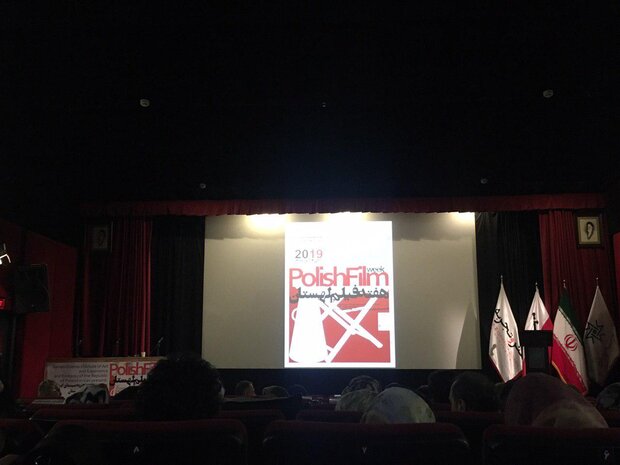Film weeks have already proved themselves as an effective cultural medium to bring two nations closer to one another. In Iran, the film week events are generally sponsored by the respective embassy and jointly organized by a film institution affiliated with the Ministry of Culture. They are also open and free of charge for any cinema-lover that seeks to widen her/his knowledge of the world cinema beyond the mainstream and often times gaudy box office hits. It is important for film week events to lean further toward the indie side of things, where carefully-handpicked movies have a particularly cultural-ethnic story to tell, rather than a story that merely serves to entertain.
The Polish Film Week in Iran, the second of its kind, which opened at the Iranian Artists’ Forum in downtown Tehran Sunday evening, ticks all the boxes expected of such cultural events. There is an added bonus, too. The event, organized by the Polish embassy and Iran’s Art & Experience Cinema, is hosting a special guest: Polish director, screenwriter and producer Joanna Kos-Krauze, whose two award-winning films, namely ‘Papusza’ (2013) and ‘Birds Are Singing in Kigali (2017), are included in the screening program of the film week.
In fact, the event opened with the screening of ‘Papusza’, which premiered in 2013 at the Karlovy Vary International Film Festival, where it earned a jury prize and went on to earn several other international awards at other film festivals. ‘Papusza’ is a monochrome, somber, beautifully-rendered narrative of the rise and fall of the most distinguished Polish-Gypsy poet, Bronislawa Wajs, widely known as Papusza (meaning ‘doll’ in the Romani language), and the turning point in her life where her talent was discovered by writer Jerzy Ficowski, triggering a tragic paradox: her fame and recognition as a poet at the expense of her exclusion from her Roma community and being driven as an outcast to live the rest of her life in poverty and solitary.
‘Papusza’, in addition of offering a striking portrait of the poet Bronislawa Wajs from her younger years to her old age, was also a book of culturally-rich and intimate knowledge for the Iranian audience who, perhaps, have had otherwise a minimal chance of coming into contact with this aspect of the Polish population; the Roma ‘Gypsy’ community, with their age-long, steadfast traditions and orthodox practices, their distrust of the ‘Gadjo’ outsiders, their language, their nomadic lifestyle, their persecutions and mass executions by the Nazis, but also their music, which was a pleasure to listen to any time the film featured them.

The second Polish film event includes five other widely-acclaimed films such as ‘Katyn’ (2007) by Andrzej Wajda and ‘Gods’ (2014) by Lukasz Palkowski, in addition to the two by Kos-Krauze, which, according to the Polish ambassador Mr. Maciej Falkowski, who was speaking at the opening ceremony before the screening of ‘Papusza’, “present contemporary Poland through the perspective of important problems and dilemmas.”
“In taking up a range of different themes, the films employ various narrations, styles and techniques,” the ambassador said during his opening speech. “They embody different, highly personal sense of esthetics, sensitivity and empathy. They were directed by the best Polish filmmakers like Agnieszka Holland, Andrzej Wajda or Joanna Kos-Krauze. And I hope they will bring you nearer to what contemporary Poland is in its most true and intimate meaning.”
Mr. Falkowski then lauded the occasion as a platform for ‘dialog’, where “we talk about transcending values and human longings so common to us regardless of culture and religion, additionally in a language that exquisitely articulates all that.”
The screening of ‘Papusza’ on Sunday was immediately followed by a workshop led by the film’s director Joanna Kos-Krauze on the subject of “Polish and Iranian Art Cinema and Co-production”, where filmmakers had a chance to discuss trends and technical developments in the art of movie production in Poland and Iran.
The Polish Film Week will last until 7th December, screening one film each day for fans of Polish cinema. Other Iranian cities, Shiraz and Isfahan, are also hosting the event for the interested audience.

























Your Comment